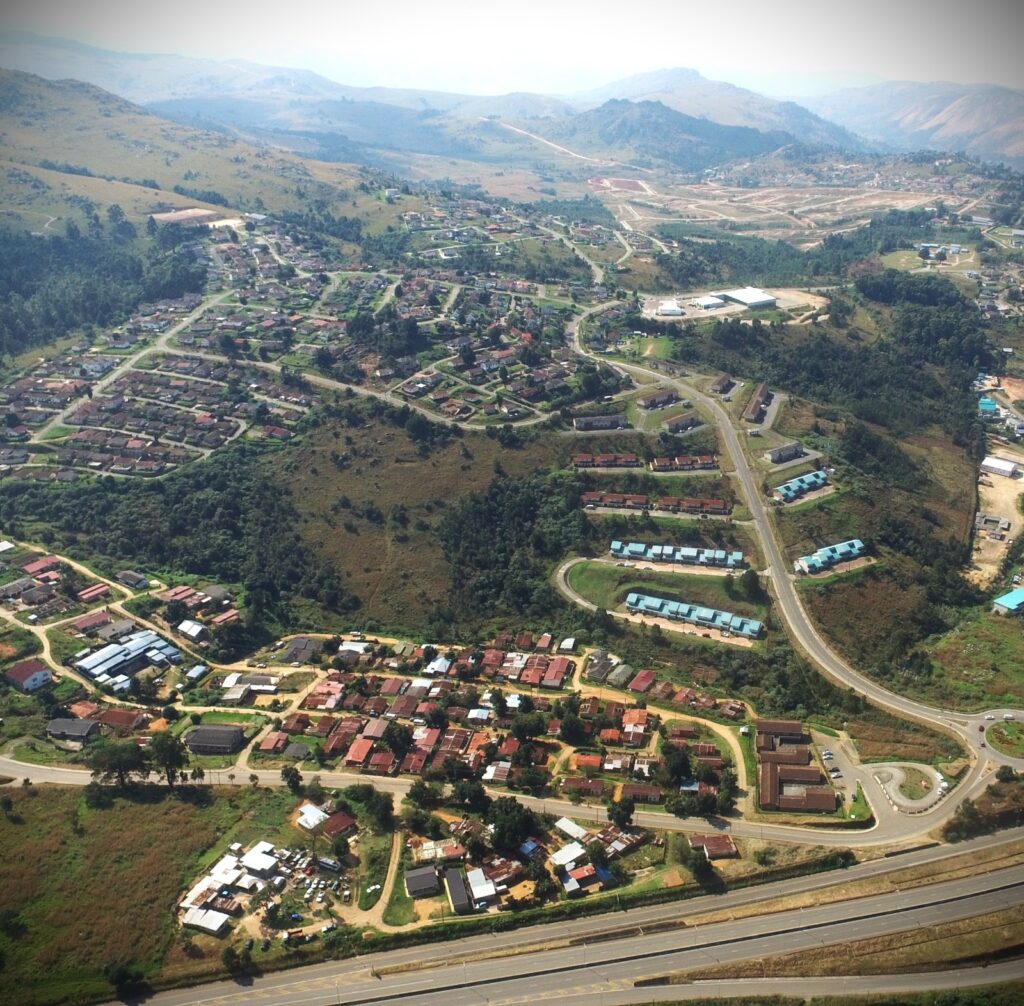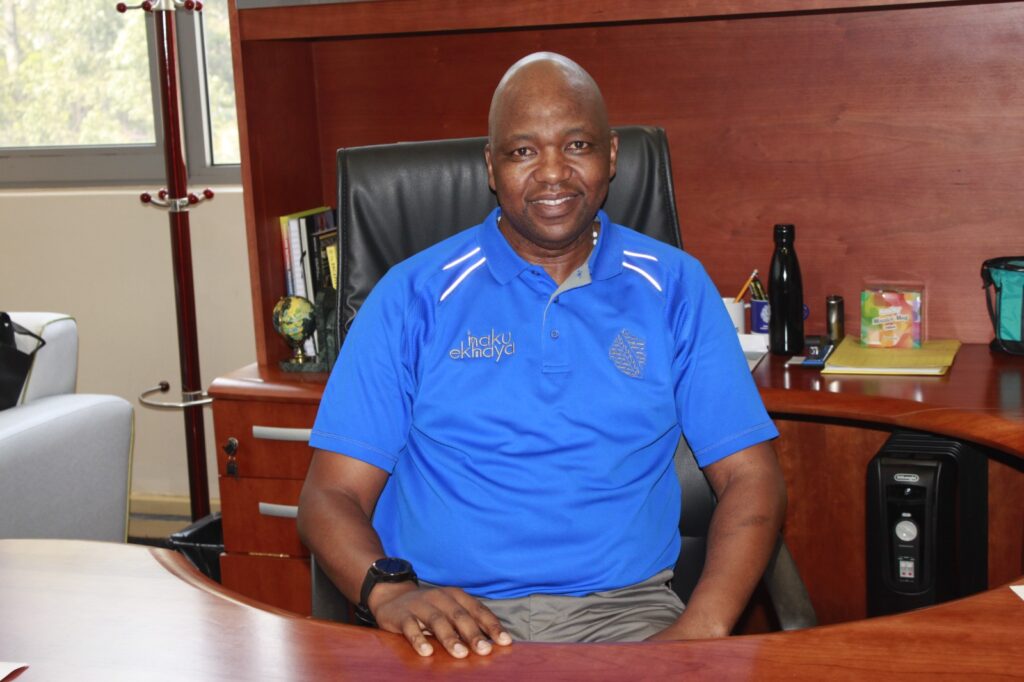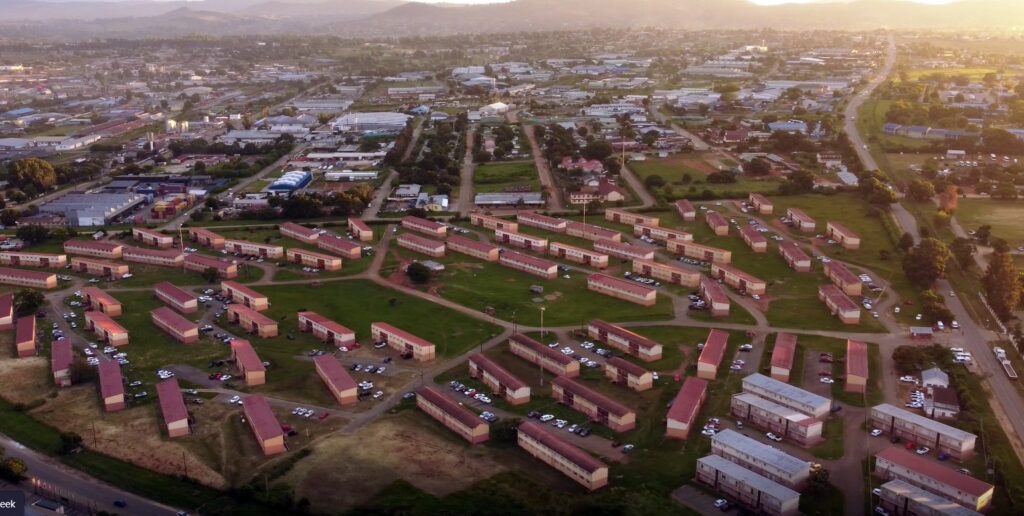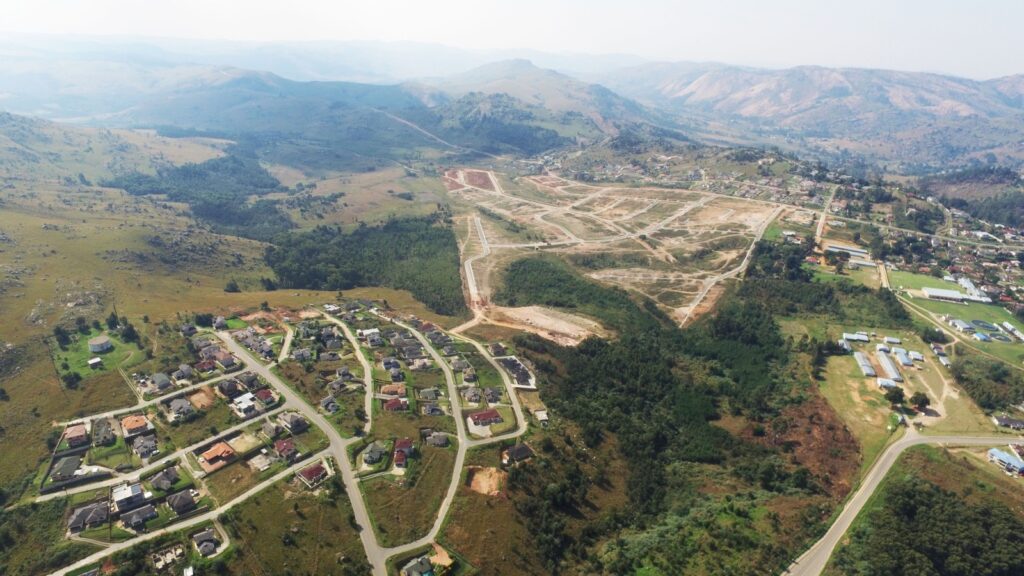
Q: The Eswatini Housing Board (EHB) has openly stated before that property is quite expensive in the country. Are there any initiatives that you are currently working on that will help abate the situation?
We are currently running a 0% deposit campaign with Eswatini Bank and Ensure Insurance Brokers. The reason we came up with the 0% deposit campaign was to assist emaSwati in acquiring property. We realized that in most cases emaSwati purchasing property from us aren’t first-time buyers, but mostly those purchasing for investment or speculation purposes. It is important to clarify that as EHB we are not against that, in actual fact, we encourage it, as we believe property plays a major role in wealth creation.
However, our mandate as EHB is to ensure that the average Swati owns property as early as possible in their working life because the nature of the asset appreciates over time. The removal of a deposit has led to first-time buyers being able to purchase property, which is pleasing to us. The advantage of starting early is that you can finish paying your property earlier and also realize equity appreciation. In essence, the value of the property appreciates while the amount paid by owners reduces.
We are also engaging the government on a national policy that will enable first-time homeowners to be exempted from transfer and stamp duty costs, among several other initiatives. This will then make it easier for first-time home buyers to enter the market.
Q: We understand that EHB has recently adopted its latest Strategy known as Strategy 2026. Can you unpack it for us?
Our Strategy 2026 has three key strategic goals that we hope to achieve.
a) Ensuring the Sustainability of the Enterprise- This is fundamental because if the institution is not sustainable we cannot carry out our mandate.
b) Develop and Strengthen Key Stakeholder Relationships– This encompasses relationships with the government, the private sector, development partners, regulators, and external institutions. As it stands we are part of BOLESWANA, which is a strategic partnership between Botswana, Lesotho, Eswatini & Namibia. Through this partner network, we are able to share information and ideas. We are also looking for further partnerships in South Africa which will teach us more about social housing. We also have a relationship with our sister company in Singapore, the Housing Development Board which assists us with international best practices.
c) Optimization of our Operational Efficiency- We have virtually digitalized all our workflows. Technology has enabled us to deliver a more efficient service that is anchored around learning to manage the entire customer experience. We want our customers to be able to tour a property or a house virtually. We are also officially a hybrid working environment, so if our staff wants to work from home they can, as long as it is authorized by their respective supervisor.
Q: Can you expand on the first goal of your Strategy?
The financial part of our business needs to be addressed, as we are currently struggling in terms of finances because property sales are lagging, our rental rates are low, and our properties are old, meaning our maintenance costs are always high, our rental units are also no longer relevant for the current generation.
We need to expand our rental portfolio and have a footprint nationwide. We do not have enough rental apartments. Essentially, we want to provide affordable rental housing in all areas of the country, particularly in locations with high economic activity. We also have a lot of debt that we paying down and are in conversation with the government on how they can assist us. This will help free up much-needed cash flow.
Q: We believe EHB is working towards a “Rent to Own” facility which will help emaSwati who cannot access a mortgage loan from banking institutions. Is this true?
Yes, we are. This facility will hopefully be operational in the next three years and we believe that there are several EmaSwati who do not qualify to access a mortgage loan from banks because of a number of reasons. We believe that this should not prevent emaSwati from being able to own property. Our strategic intent is to say if you cannot get a bank loan then maybe you can pay us a deposit and then perhaps pay a monthly rental which will enable you to own the property over time.
We must of course take into account that legislation must change for this to take place. We need regulators to be on board, the whole mechanics of the financial sector needs to change to enable this to happen. This is something that is currently taking place in neighboring countries such as Botswana and South Africa, so the question is why isn’t it being done in Eswatini? The operationalization of Sectional Title in the country makes this more ideal. Once EHB starts developing sectional title apartments, we will certainly look into ensuring that we afford emaSwati the opportunity to rent to own.

Q: The Eswatini Economic Policy Analysis and Research Centre (ESEPARC) has previously noted that EHB can be more efficient if it can be merged or put under the Ministry of Public Works & Transport. What is your response to this assertion?
Firstly, we understand that these are ongoing discussions in government as it is not only EHB but other parastatals that could be merged with other ministries or other parastatals in certain cases. As EHB, we disagree with the notion that EHB must be disbanded. One of the things we need to remind emaSwati about is that of our historical context. We come from colonization which had its ramifications, such as that land was reserved for concessions from colonizers who were farmers, and miners among other things. EmaSwati were then pushed into Eswatini Nation Land (ENL). This now led to only a few emaSwati owning property.
Secondly, in today’s economy, there is a big disparity in terms of access to economic opportunity. It is an open secret that most emaSwati are low-income earners, and higher-income earners are not indigenous emaSwati. If you close down EHB who will address those disparities and open opportunities for emaSwati to participate in their economy? Disbanding EHB will lead to an increase in socio-economic tensions which could even possibly lead to the unrest we witnessed a couple of years ago. EHB is a key part of ensuring the prosperity of this country.
Q: Have you engaged the government on the importance of EHB for the country?
Yes, we have had numerous discussions with the government regarding this matter. We have reiterated the importance of EHB and ensuring that the entity receives support to ensure that it carries out its mandate. The National Development Plan developed by the country in partnership with international bodies stresses that the government is moving towards a private sector-led economy. We applaud the move, however, we would like to point out that there are social services that cannot be privatized; housing being one of them. The ownership of property is so important for several reasons – it affords people the opportunity to create wealth and also affords them dignity.
We, therefore, urge the government to support us. By support, we are not referring to subsidies per se, but we do need political and legislative support. We also need financial support in terms of sovereign guarantees. If government can provide us with sovereign guarantees we can access global funding, which is much cheaper than local rates. This would enable us to roll out projects that will then repay the loans.
The other reason we need the government to provide political and legislative support to EHB is because whenever we do these developments across the country, the entire economy benefits. Architects, property developers, financiers, insurance companies, and buyers all benefit. So property development has a multiplier effect and the economic benefit is massive for the country. This in turn enables the government to recoup the money back through taxes. We do not believe that privatizing social services will create a happier economy. Privatization does lead to efficiencies but it is difficult to achieve that in certain sectors of the economy. Privatization is driven by profit which means that after a certain development prices tend to be higher. The challenge is that most emaSwati are low-income earners which is likely to increase the social tension in the country.
Q: So you are saying the country should take a much more social view when it comes to housing?
We cannot afford not to be more social in certain policies. As a developing country with a history of colonization and unequal development, it is imperative that we adopt social policies in some parts of the economy. This is not to say we must be a purely socialist state, but we must acknowledge that most of the emaSwati do not afford property, as a result, we must ensure we come up with a more inclusive way.

Q: The country was recently visited by UN-Habitats’ African Regional Director Mr. Oumar Sylla. What was the purpose of the visit, and why is it important?
This was one of the most important developments that has taken place in our sector. It was a watershed moment for me. You will appreciate that this was the first time that the UN-Habitat had sent the highest-ranking Director to come and visit the country. The highlight of the visit was that they committed to establishing a UN-Habitat Office in the country. Once the Office is established it means we will have a closer engagement for grants or professional assistance. This visit was also a massive step for the country because the UN-Habitat sets the agenda and gives guidelines, directing legislation and policy for our sector. I must also point out that the Southern African region does not have a regional UN-Habitat Office, so this would mean the Office in Eswatini becomes the regional office.
Q: What pressing issues would you like the UN-Habitat to address in the country?
In the context of urban development; planning for and creating cities in an orderly manner that creates quality of life for citizens. This looks at infrastructure, environment, understanding the role of technology, and engaging communities in the planning and development of their cities. It’s an agenda around building our cities for resilience and sustainability, by ensuring that they are the product of participation. The participation from the owners of the city will enable the country to build cities that take into account the needs of vulnerable and marginalized groups, such as people living with disabilities.
Q: The Sectional Titles Act is now operational in the country but there isn’t any activity in the space. What is the hold-up?
As you rightly state the Act is operational, what is required now is for stakeholders to find the business case. The challenge with the existing stock in the market is that the properties do not owe anything yet they provide good cashflow every month. As a result, there isn’t a financial incentive to sell those properties. The owners are not ready to dispose of them as they are still making a recurring income.
The second challenge we currently face is the cost of development. When you factor in costs such as electricity, water, general infrastructure costs, and other input costs then development costs shoot up. So the financial incentive to develop new sectional title units is not there. The final challenge we are facing under the sectional title is market forces; we aren’t a big economy.
Q: In your assessment, what is the answer to the sectional title conundrum?
Well, this is why I said earlier a fully privatized economy is not ideal for the country. There must be a strong social aspect to it. This is where EHB comes in, if the government can provide us with sovereign guarantees we can then go outside and look for loans with low-interest rates and then develop sectional title units that emaSwati can afford. The reality is there isn’t an incentive for private developers to fully engage in sectional title development because of the high input costs that come with development.
Q: Do you think the banning of foreigners from owning property in the country also contributes to the slow uptake of sectional titles?

It is a shame that we are having this discussion about foreigners being banned from participating in our economy. A tenet of our development as a government has always been foreign direct investment. Inherently, we have been saying we welcome foreign participation, however when it comes to property ownership this is not the case. I believe we should be more open because having more developers will lead to more competition and ultimately more affordable products and better quality. On the flipside, I think as a country we have not empowered indigenous emaSwati when it comes to property ownership. This then leads to the negative sentiment as indigenous emaSwati witness foreigners owning property all over the country, and then start believing that foreigners are the reason behind them not affording to own property.
The size of our economy means that we need outside participation, but that must be met with an intentionally designed system to promote local participation. If we can balance those two then we can witness a thriving property sector. We need to tell the world that we are open for business while prioritizing and empowering emaSwati.
Thank you for your time CEO.
You are most welcome.
